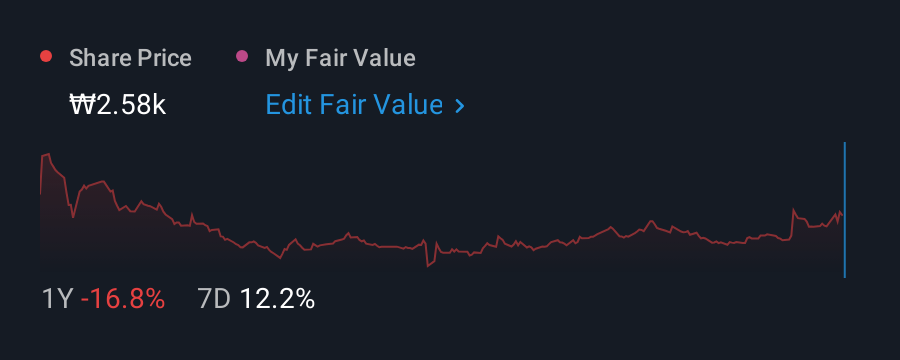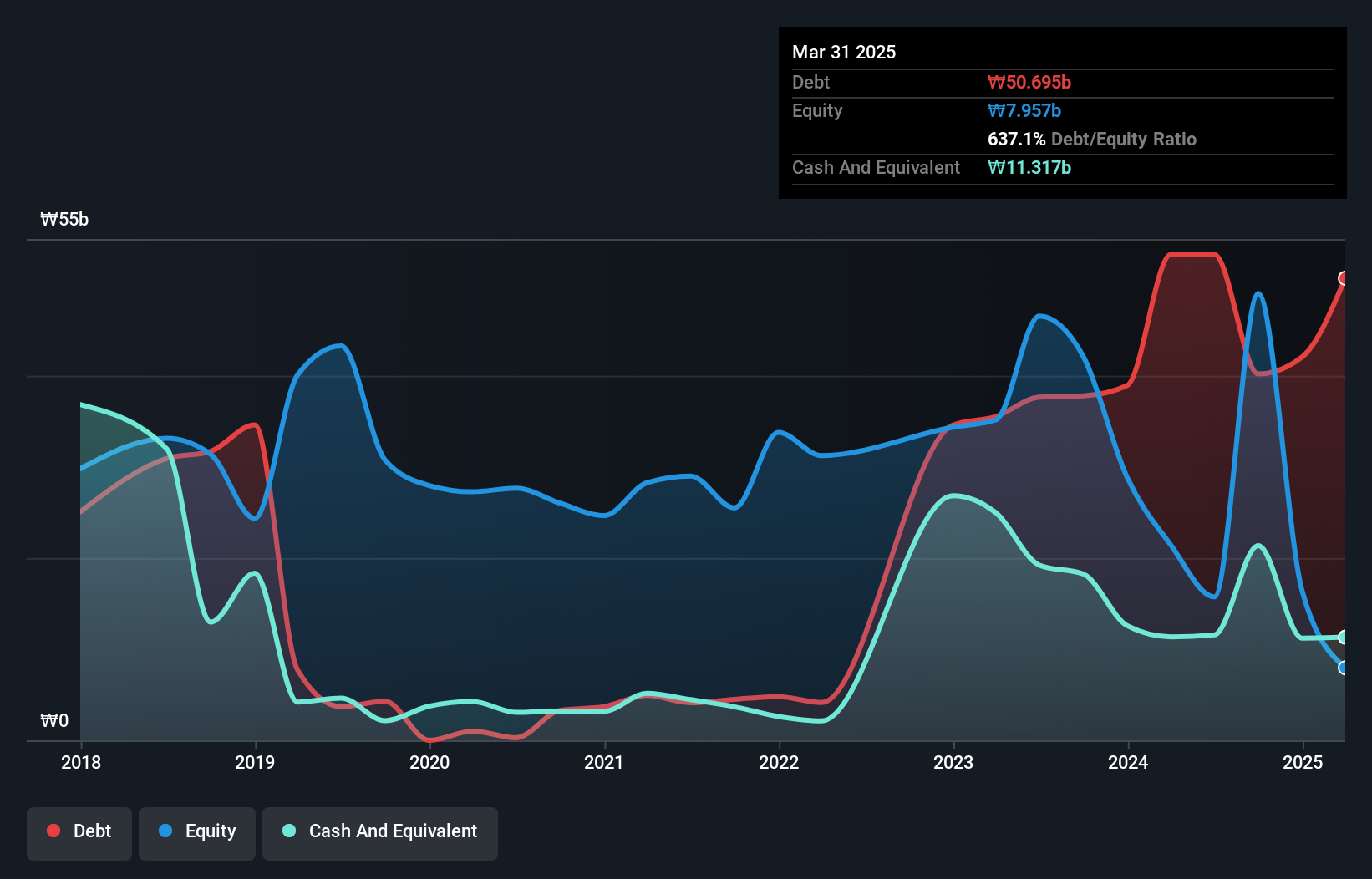

Some say volatility, rather than debt, is the best way to think about risk as an investor, but Warren Buffett famously said that 'Volatility is far from synonymous with risk.' So it seems the smart money knows that debt - which is usually involved in bankruptcies - is a very important factor, when you assess how risky a company is. We note that Dx & Vx Co., Ltd. (KOSDAQ:180400) does have debt on its balance sheet. But should shareholders be worried about its use of debt?
When Is Debt Dangerous?
Debt is a tool to help businesses grow, but if a business is incapable of paying off its lenders, then it exists at their mercy. If things get really bad, the lenders can take control of the business. However, a more common (but still painful) scenario is that it has to raise new equity capital at a low price, thus permanently diluting shareholders. Of course, debt can be an important tool in businesses, particularly capital heavy businesses. The first thing to do when considering how much debt a business uses is to look at its cash and debt together.
How Much Debt Does Dx & Vx Carry?
The image below, which you can click on for greater detail, shows that Dx & Vx had debt of ₩50.7b at the end of March 2025, a reduction from ₩53.3b over a year. However, it also had ₩11.3b in cash, and so its net debt is ₩39.4b.

A Look At Dx & Vx's Liabilities
The latest balance sheet data shows that Dx & Vx had liabilities of ₩26.4b due within a year, and liabilities of ₩37.1b falling due after that. On the other hand, it had cash of ₩11.3b and ₩9.69b worth of receivables due within a year. So it has liabilities totalling ₩42.5b more than its cash and near-term receivables, combined.
Dx & Vx has a market capitalization of ₩127.5b, so it could very likely raise cash to ameliorate its balance sheet, if the need arose. But it's clear that we should definitely closely examine whether it can manage its debt without dilution. When analysing debt levels, the balance sheet is the obvious place to start. But it is Dx & Vx's earnings that will influence how the balance sheet holds up in the future. So when considering debt, it's definitely worth looking at the earnings trend. Click here for an interactive snapshot.
View our latest analysis for Dx & Vx
Over 12 months, Dx & Vx made a loss at the EBIT level, and saw its revenue drop to ₩31b, which is a fall of 27%. That makes us nervous, to say the least.
Caveat Emptor
While Dx & Vx's falling revenue is about as heartwarming as a wet blanket, arguably its earnings before interest and tax (EBIT) loss is even less appealing. Indeed, it lost a very considerable ₩24b at the EBIT level. When we look at that and recall the liabilities on its balance sheet, relative to cash, it seems unwise to us for the company to have any debt. So we think its balance sheet is a little strained, though not beyond repair. Another cause for caution is that is bled ₩25b in negative free cash flow over the last twelve months. So suffice it to say we consider the stock very risky. When analysing debt levels, the balance sheet is the obvious place to start. But ultimately, every company can contain risks that exist outside of the balance sheet. For example Dx & Vx has 5 warning signs (and 4 which can't be ignored) we think you should know about.
At the end of the day, it's often better to focus on companies that are free from net debt. You can access our special list of such companies (all with a track record of profit growth). It's free.
New: Manage All Your Stock Portfolios in One Place
We've created the ultimate portfolio companion for stock investors, and it's free.
• Connect an unlimited number of Portfolios and see your total in one currency
• Be alerted to new Warning Signs or Risks via email or mobile
• Track the Fair Value of your stocks
Have feedback on this article? Concerned about the content? Get in touch with us directly. Alternatively, email editorial-team (at) simplywallst.com.
This article by Simply Wall St is general in nature. We provide commentary based on historical data and analyst forecasts only using an unbiased methodology and our articles are not intended to be financial advice. It does not constitute a recommendation to buy or sell any stock, and does not take account of your objectives, or your financial situation. We aim to bring you long-term focused analysis driven by fundamental data. Note that our analysis may not factor in the latest price-sensitive company announcements or qualitative material. Simply Wall St has no position in any stocks mentioned.
About KOSDAQ:A180400
Dx & Vx
Engages in the development and sale of bio-health care products and provides molecular genetic testing services primarily in South Korea.
Moderate risk and slightly overvalued.
Market Insights
Community Narratives





